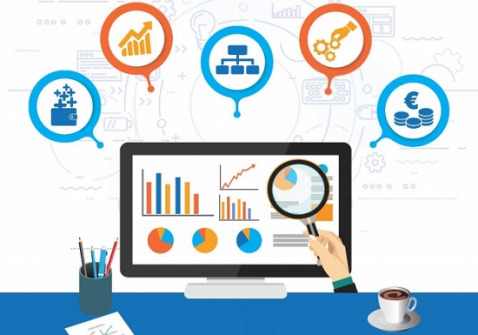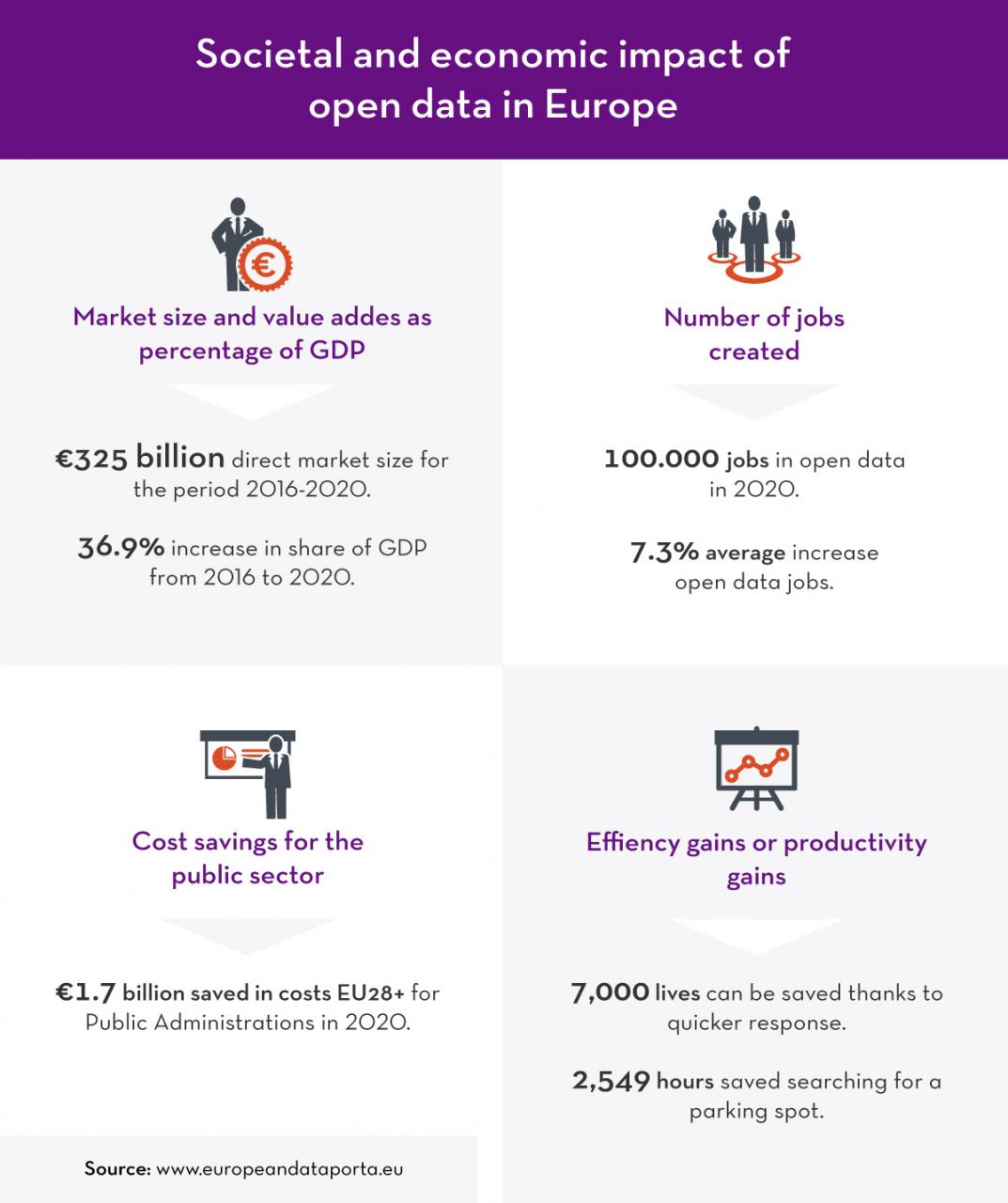Transforming open data into economic and societal value
Fecha de la noticia: 24-04-2017

Only if data are opened and made available to society, their real potential can be re-used to improve the existing services, optimize business processes and find solutions to corporate challenges through information analysis. In fact, according to the European Data Portal (EDP), 23% of the companies analyzed expect their turnover related to the re-use of open data to increase between 11% to 60% in the coming years, while 37% of the respondents forecast their turnover to increase by at least 61% annually.
These figures are the result of EDP's latest report Re-using Open Data: a study on companies transforming open data into economic & societal value, a new material from the pan-European initiative to understand how organizations, especially those in the private sector, re-use open data and identify the business models based on them.
Thus, with a greater knowledge about the transformation of open data into real value, the European Data Portal can make data providers better understand how open data helps adapt their data strategy and, therefore, improve the reusability of public sector information; whereas the society is shown the potential of open data by collecting real cases that use open data to generate value.
Report's methodology
First, the macroeconomic benefits of open data in the European Union were analyzed, from which the market in this sector is expected to reach 75.7 billion euros and to generate up to 100,000 jobs in 2021. In addition to these numbers, an interview was conducted with different companies from 21 countries to learn how they had re-used the open data in their services and products.

A number of entities were selected from the total sample to learn in detail their reusability experiences, the findings were interspersed with the results of a survey conducted during the last edition of the International Open Data Conference held last October in Madrid. All this added to the knowledge and experience shared by European companies through the EDP portal.
Typology and origin of open data re-used by companies
In order to understand what data categories are the most re-used by the business sector, firms surveyed had to select among thirteen sectors identified by the European Commission during the review of the DCAT application profile: science and technology, society, health, justice, government and Public sector, culture and education, environment, international, economy, transport, cities, energy, agriculture and food.
76 of the companies indicated to re-use at least one or more data categories, government & public sector (11.9%), economy & finance (11.6%), regions & cities (10.1%), population & society (9.5%), and environment (8.9%) are the five most re-used sectors, representing 52% of the total re-use of open data by the respondents.
Although the companies use data from all over Europe, and even from the USA, the United Kingdom and Spain are the most popular countries among the companies. These two nations have a greater representation in the sample given their high level of open data maturity compared to the rest of the European Union. In addition, most of the businesses surveyed claim to combine information from the public sector with their own corporate data when developing their products and services.
Business models and clients
In order to know how entities generate business based on open data, respondents were asked to indicate their source of income, concluding that 21% of them base their re-use activity on the sale of services or products (or the combination of both), focusing on two main areas: the provision of software services (41%) and consulting (25%).

In addition, the businesses surveyed were also asked to define to whom they deliver their goods or services e.g. to other businesses (B2B), consumers (B2C) or governmental organisations (B2G).The results show that there is not a clear tendency as under one third serve all client segments while more than half serve two or more client segments.
The role of open data in business models
The survey conducted by the European Data Portal included seven options for respondents to select how open data is integrated into their business models: Enhancing products, enhancing services, process optimization, data as a service, information as a service, answers as a service, development of web or mobile applications.
From all the answers, it was found that the most recurrent business model, related to the re-use of open data, is the optimization of services; using, in addition, the open data within the company with the following goals:
- Improving internal processes.
- Providing access to third party information.
- Offering services developed from re-use.
- Creating social impact from the open data.
Finally, companies have also identified the barriers to access and re-use open data, highlighting poor quality of information, lack of standardization and homogeneity, and difficulties in obtaining the data (with their corresponding metadata) suitable for their needs.
The report concludes with a set of recommendations for both the public sector which needs to better align its data publishing strategy with user requirements and the private sector which is invited to share its experience in the re-use of open data to be able to show the benefits of growth and innovation that the open data offers to the society as a whole. After all, knowing the value of data not only helps improve open data policies but it also helps other companies discover the potential of open data and join a booming sector, which will increase its market share by 37% in the coming years.











